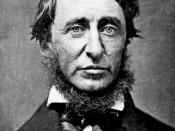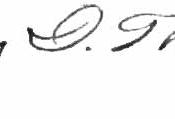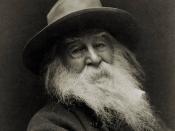Some of the greatest American writers of the nineteenth century wrote about a theme of the individual. Two that come to mind when writing about the individual are Henry David Thoreau who wrote "Civil Disobedience" and Walt Whitman who wrote "One's-Self I Sing." Thoreau was known for being an individualist, who fought against materialism and social conformity. Whitman was similar to Thoreau in that he too took powerful and devoted stands against the social and cultural directions of individuals. Whitman also used his own character as a standard of self, submitting his own essence as equal with that of the everyday person. One last person that comes to mind when writing about the individual is, of course, Ralph Waldo Emerson who wrote "Self-Reliance." This literary work is probably the best work about only the individual and how an individual should be perceived.
`In "Civil Disobedience," Thoreau begins an attack on the philosophy of a strong ruling government by saying, "I heartily accept the motto 'That government is best which governs least;' and I should like to see it acted up to more rapidly and systematically."
(Thoreau 1614) Thoreau further states that he holds the belief that man will be able to have a government that does not govern at all. He believes that the need for government really arises from the requirement of people to have a sort of "machine" to control things and make their decisions for them. Thoreau explains that the only time government has helped is when it has stood aside. In fact government does not: keep the country free, settle the west, or educate; rather such achievements come from the character of the people. The message I received from reading Thoreau is to avoid associating with government all together, that people should live by...


